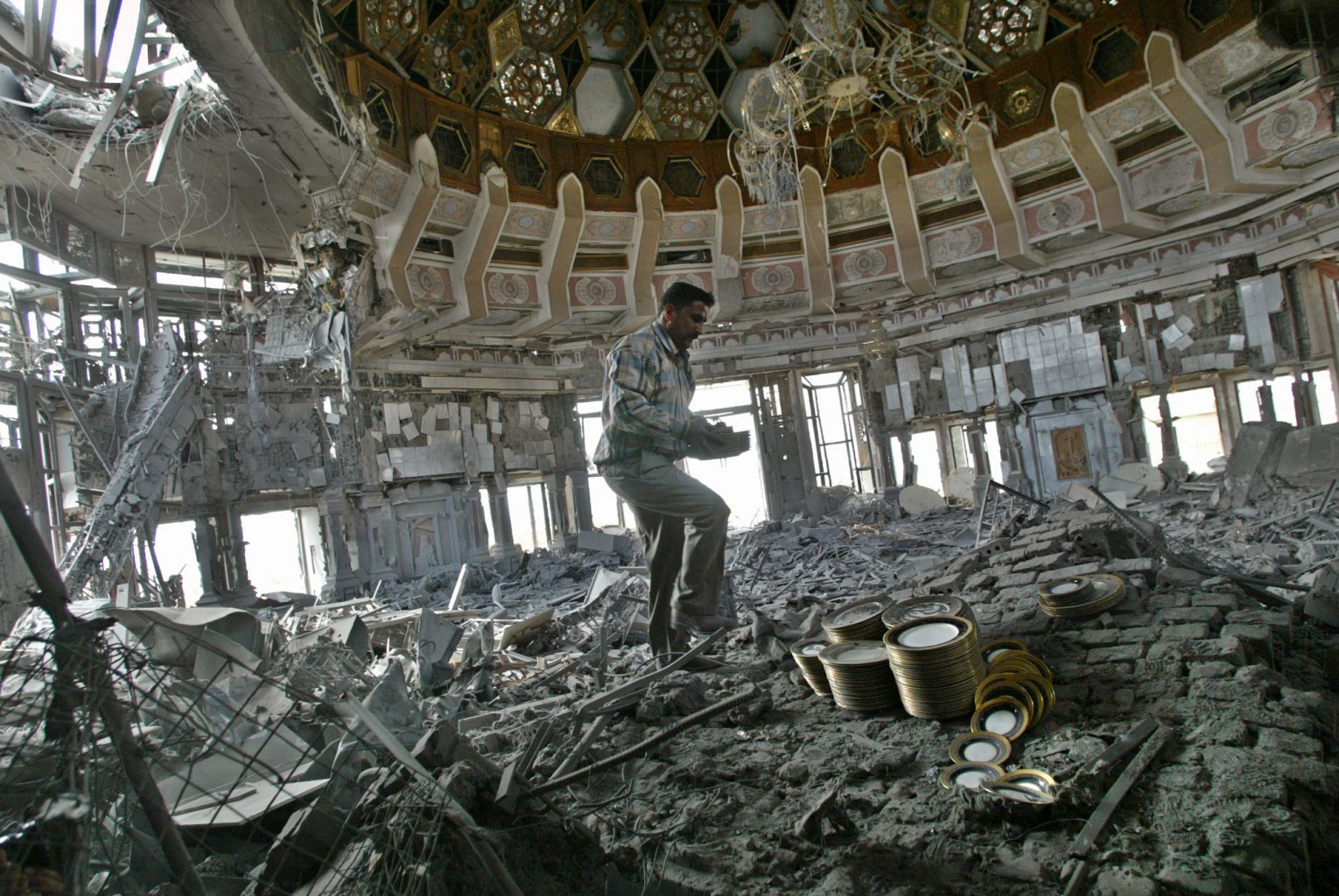Michael Rakowitz’s multidisciplinary practice engages the senses as a means of sparking discourse around pressing political, social and historical issues. An American artist of Iraqi-Jewish origin, he is known for establishing unexpected connections between Iraqi history and cultures in the Western world to create entirely new and composite narratives that involve audiences in a vibrant revival of the past.
His non-gallery installations based around food and shelter produce an atmosphere in which conversation between the artist and his audience can flow freely around the work’s subject matter. Rakowitz believes that discussion is at its most effective when participation is involved. “I want to sit in a place where dialogue would be available,” he explains. His work is often empowered by its political or social message, responding in particular to the issue of cultural dislocation, where Western audiences only experience the culture of Middle-Eastern through a discriminatory media lens. Rakowitz’s work brings these cultures directly to a Western audience. He sets up scenarios that revisit an aspect from the region’s history or customs, enriching the participant with knowledge and respect.
Enemy Kitchen is an ongoing project begun by Michael Rakowitz in 2004. Collaborating with his Iraqi-Jewish mother, he compiles Baghdadi recipes and teaches them to different public audiences. For the first incarnation of the project, organized by More Art, Rakowitz cooked with a group of middle school and high school students who live in Chelsea and participate in after-school and summer programs at the Hudson Guild Community Center. Some had relatives in the US Army stationed in Iraq. In preparing and then consuming the food, it opened up another topic through which the word ‘Iraq’ could be discussed—in this case, attached to food, as a representative of culture and not as a stream of green-tinted images shown on CNN of a war-torn place. The project functioned as a social sculpture: while cooking and eating, the students engaged each other on the topic of the war and drew parallels with their own lives, at times making comparisons with bullies in relation to how they perceive the conflict. In this way, the project provided a space where the opinions, myths and facts that are perpetuated in a country during wartime could be communicated and discussed.
For TECTONIC, Rakowitz presented a new site specific work as a continuation of Enemy Kitchen. Dar Al Sulh (2013) will exist as a restaurant serving his mother’s recipes of Iraqi Jewish food, thus establishing the first restaurant of its kind in Arab lands since the mid twentieth century. As Michael explains, ‘The exodus of Jews from Arab lands (and this is already a sad sentence, as Jews were Arabs too), is one that has been propagandized and mythologized by Israel, the flawed narrative of Zionism and other entities in order to bolster cultural and political positions. Dar Al Sulh seeks to be a time machine, to reclaim a space when there was harmony, when these Jews did not yet abandon their Arab selves and also before Jewish populations in the Arab world were suspected of being complicit with Zionism, which we know was often not true. The notion of conciliation, of tolerance is central to the concept of Dar Al Sulh as a philosophy, and one that I hope can be reflected in the food and conversations around it.’
Michael Rakowitz (b.1973) is the winner of a 2012 Tiffany Foundation Award, the 2007 Sharjah Biennial Art Prize. Recent exhibitions include What Dust Will Rise?dOCUMENTA 13 (2012), The Breakup, Al Ma’mal Foundation for Contemporary Art (2010) The Worst Condition is To Pass Under a Sword That is Not One’s Own, Tate Modern (2010), The Invisible Enemy Should Not Exist, Lombard Freid Projects, New York (2007),paraSITE, various urban sites in Boston, Berlin, New York City and Baltimore. His work features in several private and public collections including those of the Museum of Modern Art, New York, Smart Museum of Art, Chicago, The British Museum, Kabul Museum, Afghanistan and UNESCO, Paris. He currently lives and works between Chicago and New York.
